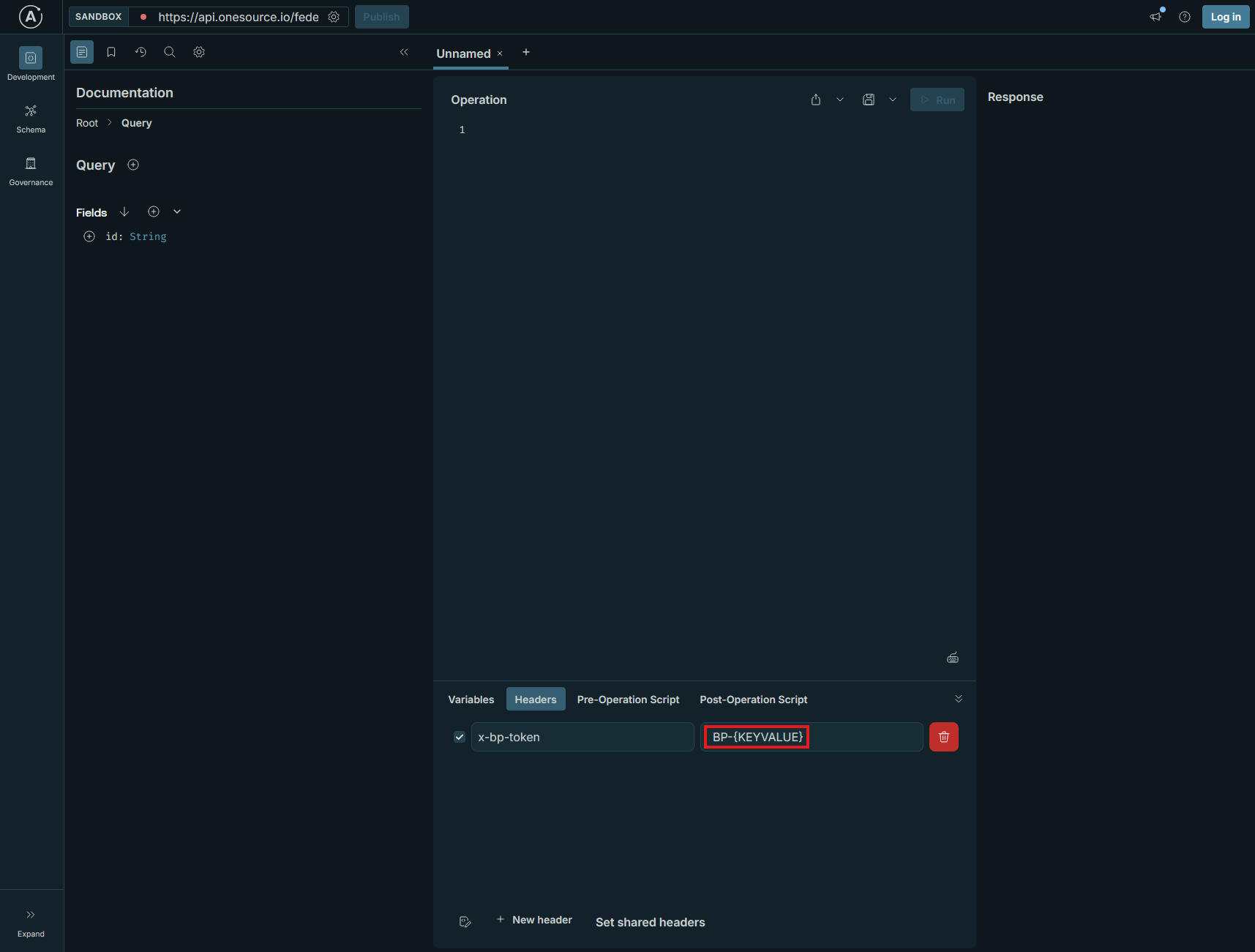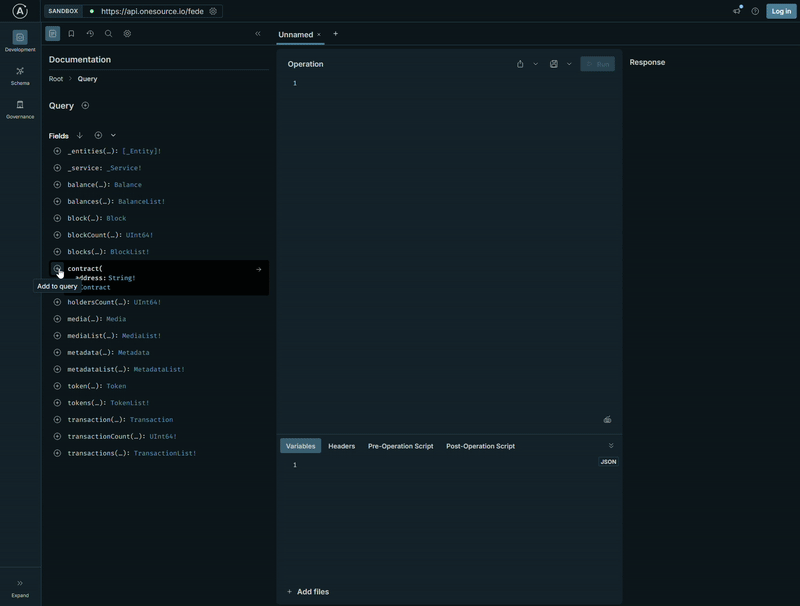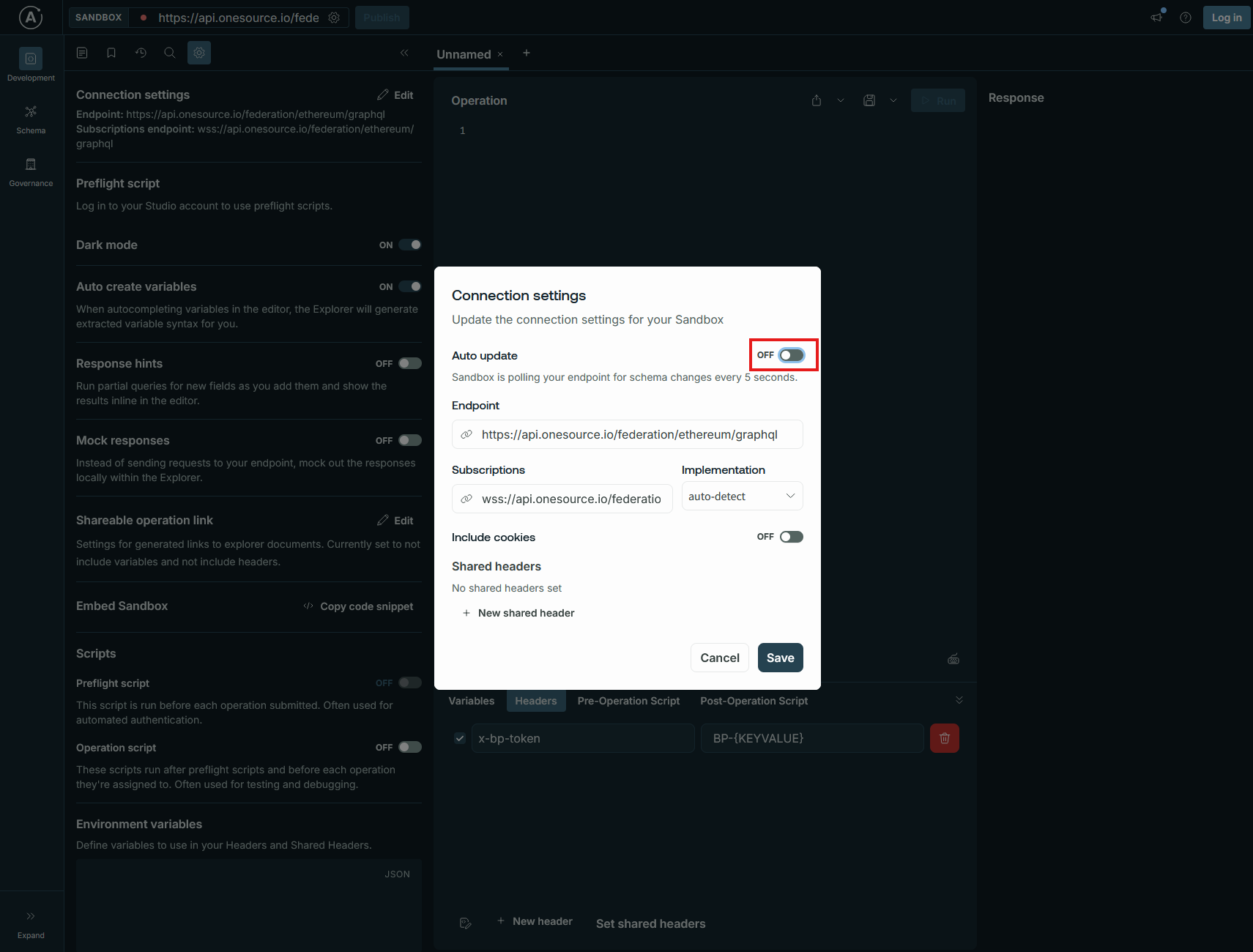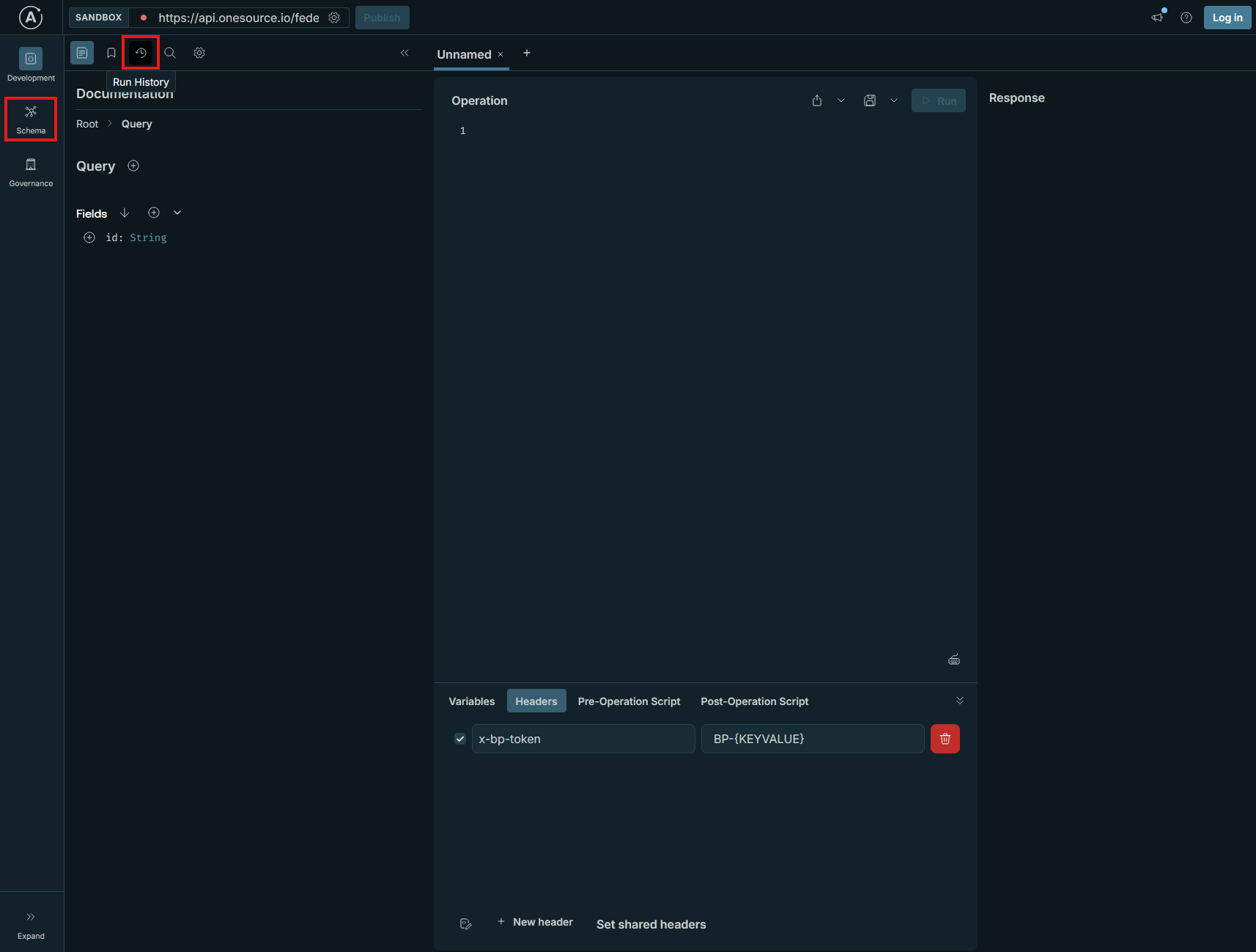Apollo Sandbox
Key Features
- Interactive Query Builder: Build queries by selecting arguments and fields from the schema documentation.
- Comprehensive Documentation: Auto-generated documentation for all types and queries including field descriptions.
- Debugging Tools: Pretty-printed JSON results with collapsible sections and detailed error messages with path highlighting.
Accessing Apollo Sandbox
This link loads Apollo Sandbox pre-configured with the OneSource Web3 API Ethereum endpoint and header key.
Simply replace BP-{KEYVALUE} in the Headers tab with your API key value (BP-{KEYVALUE} only) and you're ready to begin.

Using Apollo Sandbox
Although the above link to Apollo Sandbox is not pre-configured with query templates, it is quite easy to build your own queries with the Apollo Sandbox interactive query builder.

It is important to note that Apollo Sandbox by default polls the connected endpoint for schema changes every 5 seconds. Each poll is counted by OneSource as a request against your API key. You may wish to disable this feature so as to conserve your requests, particularly if you intend to be working with the Apollo Sandbox for extended periods of time.
This setting can be disabled by navigating to the settings where you can edit the Connection settings. In the Connection settings menu, toggle the Auto Update feature to the OFF position as shown below.

Other Features
Apollo Sandbox allows you to retain and reference your history and browse the schema just like the OneSource Playground. You can access these features as shown below.
